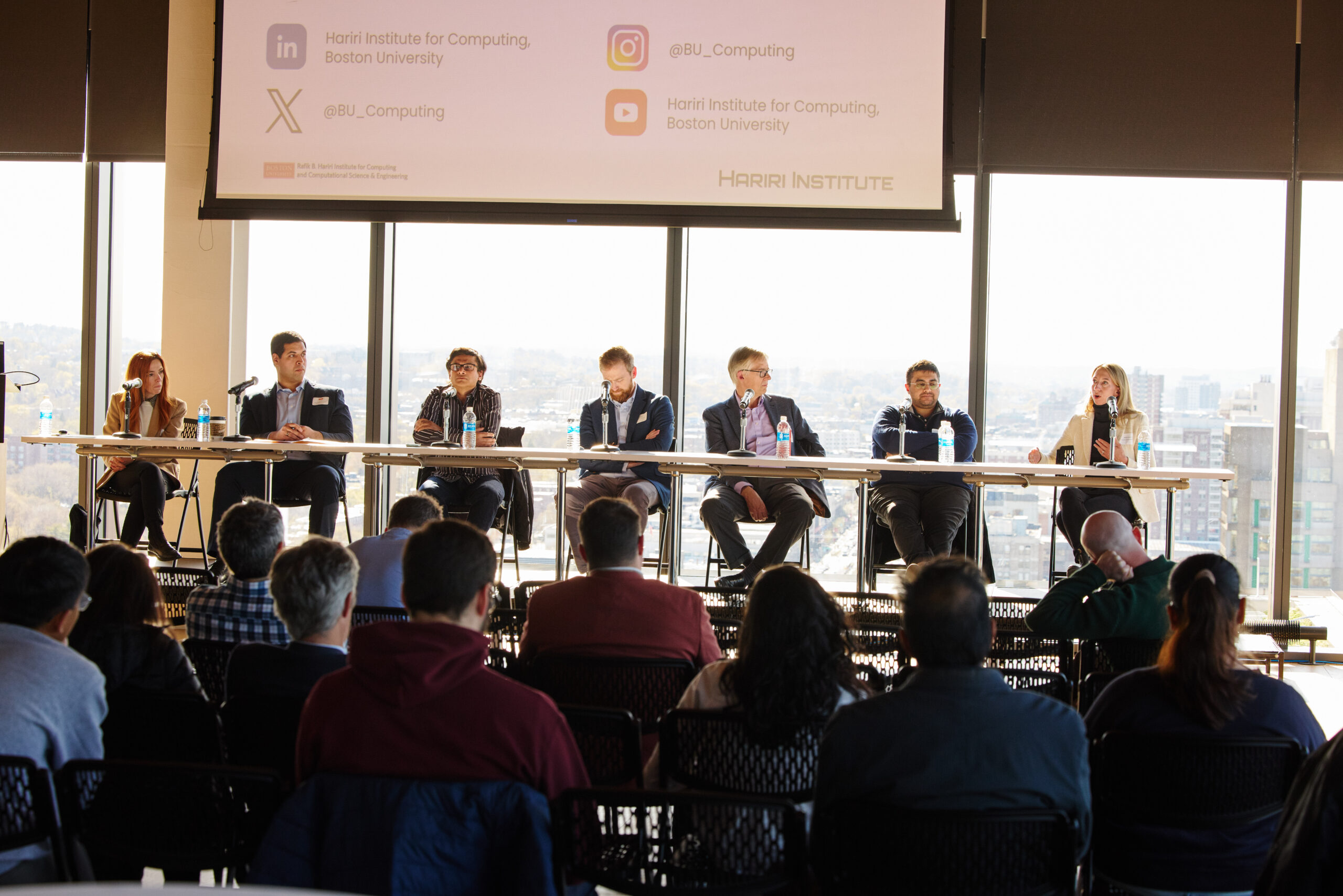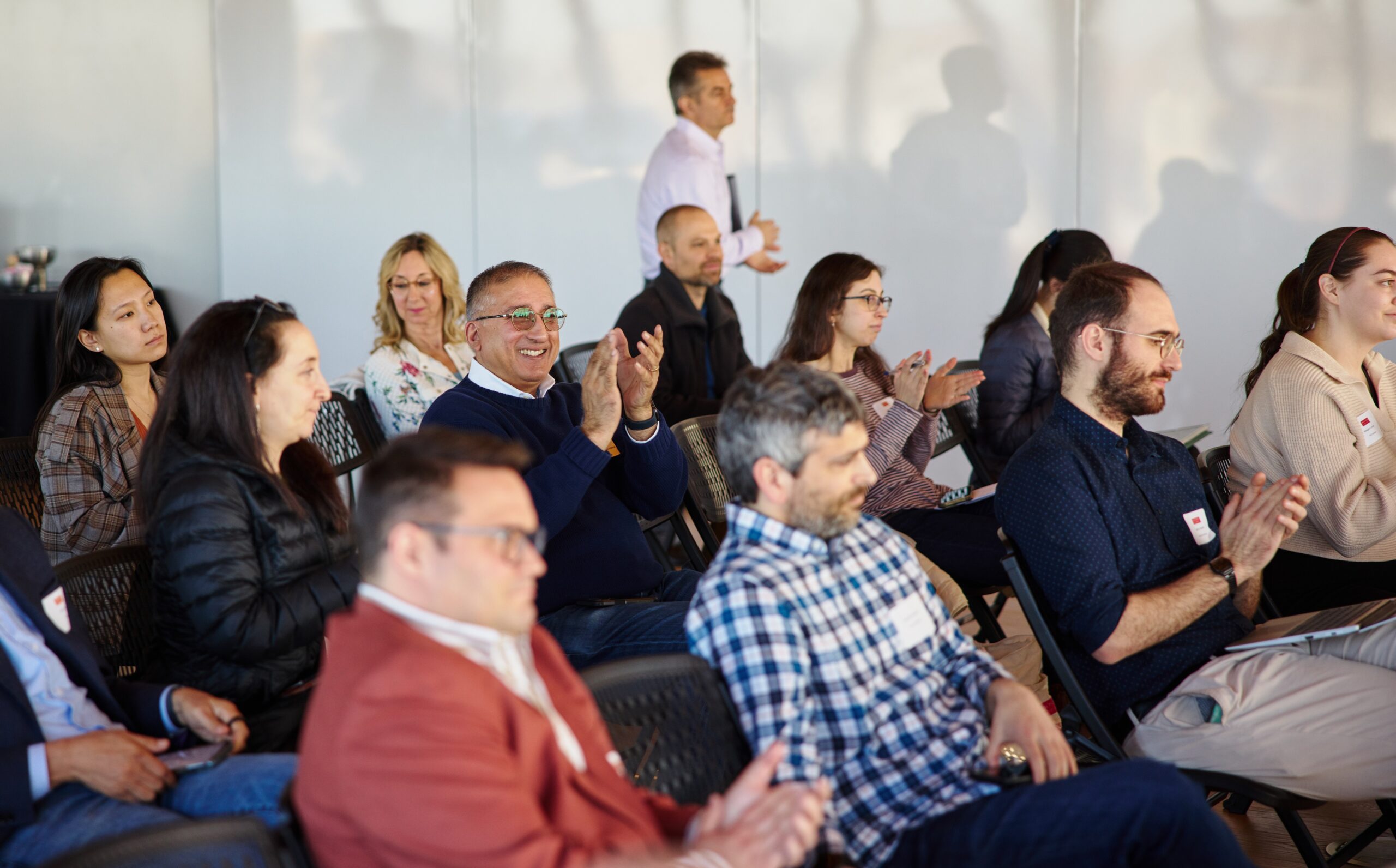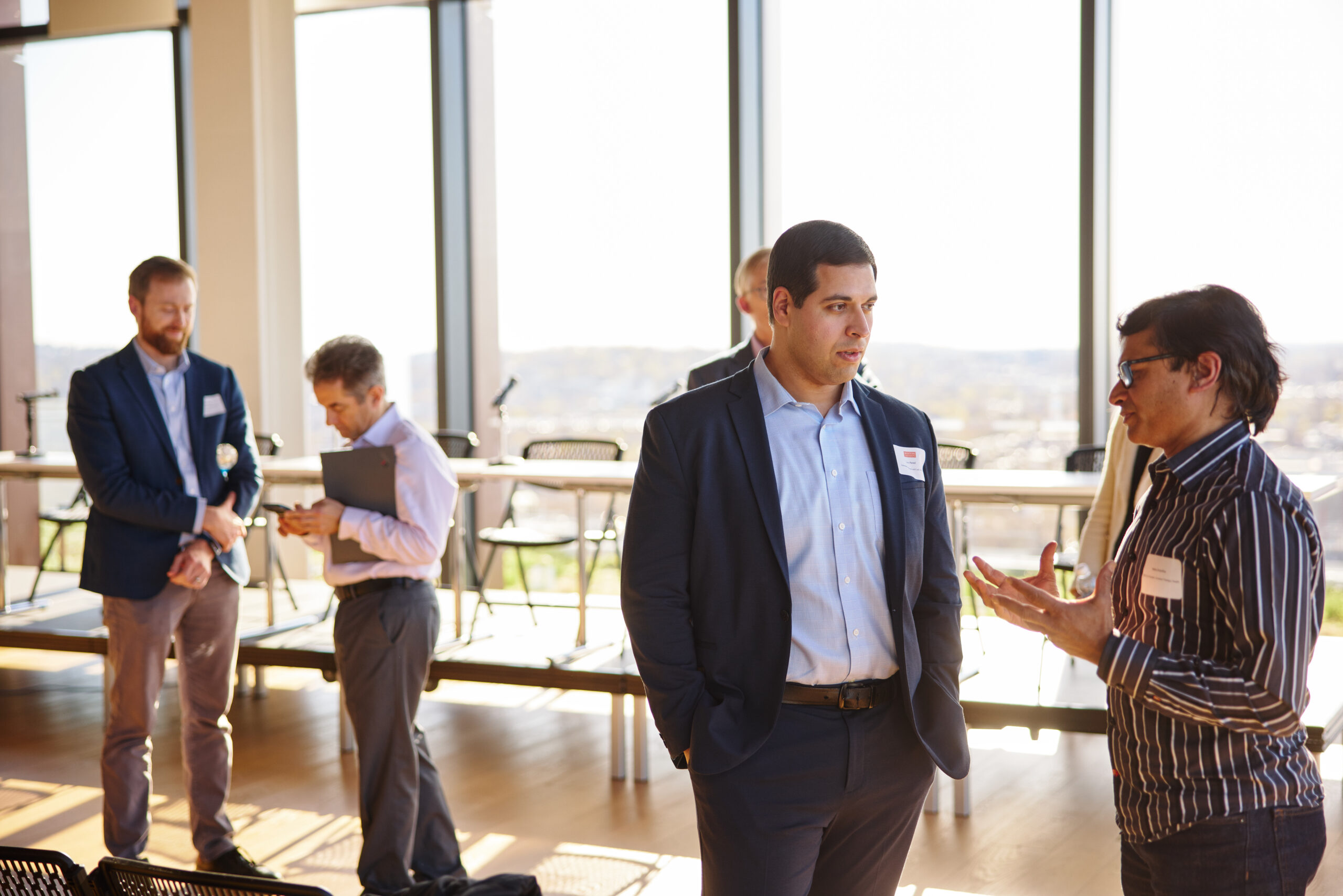What Can Digital Diagnosis and Digital Therapeutics Tell Us About the Brain?
BU’s Hariri Institute Teams Up With CBR To Bring Together Leaders in Digital Diagnosis and Digital Therapeutics

This past April, an industry panel discussion took place at Boston University that shed light on the applications of digital diagnostics and therapeutics in brain health. Co-hosted by the Boston University Hariri Institute for Computing and the Center for Brain Recovery, the event brought together leaders from the digital health industry and interested participants to explore the latest advancements and challenges in this ever-growing field of study. This event was also sponsored by the Hariri Institute’s Digital Health Innovation Award for a Focused Research Program titled “Novel Data Science and AI Approaches for Brain Health and Brain Disease.”
Highlights from the Event: Revolutionizing Brain Health with Digital Tools
Digital tools are revolutionizing how we understand and manage brain health. From self-managed applications to smart watches and developing technologies, these tools are providing important insights into brain function. They offer new ways to monitor, diagnose, and treat neurological disorders such as dementia, stroke, and traumatic brain injury. These areas of research are some of the main focuses of PhD students and faculty at the Center for Brain Recovery and other researchers at Boston University and across Boston. By incorporating these technologies and developments into their current research significant progress can be made with the help of other individuals in the field of digital health.
Lessons Learned
One of the key takeaways from the discussion was the importance of strong partnerships with researchers and clinicians in the successful development of digital health products. These collaborations ensure that the products are not only innovative but also clinically relevant and effective. Combining the patient centered experiences of clinicians with the technological knowledge of researchers allows for new areas to be explored in this field.
Skills for Future Careers
For students aspiring to enter this dynamic field, the panelists highlighted the essential skills needed for success. Problem-solving abilities, execution skills, and a basic understanding of finance are crucial. These skills will enable students to navigate the complexities of product development and bring impactful solutions to the public.

Discussion Topics
The panel explored various aspects of digital diagnostics and therapeutics, particularly in the context of neurological disorders. Key topics included:
- Advances in Commercial Solutions: The panelists discussed the latest innovations in digital diagnoses and therapeutic solutions, highlighting how these tools are changing the landscape of neurological care.
- Challenges in Adoption and Compliance: Despite the promise of digital tools, there are significant challenges in terms of adoption and compliance. The panel explored these hurdles and shared insights on how to overcome them.
- Data Quality and Management: Ensuring high-quality data is crucial for the effectiveness of digital health tools. The panelists discussed strategies for maintaining data integrity and managing the vast amounts of data generated by these technologies.
- Industry and Research Partnerships: Collaboration between industry and research institutions is vital for advancing digital health solutions. The discussion underscored the need for strong partnerships to drive innovation and ensure that new tools are grounded in solid scientific research.
Meet the Panelists
The event featured an impressive lineup of industry professionals leading research and developments in digital brain health, including:
- Veera Anantha, CEO & Co-Founder, Constant Health Therapy
- David Bates, CEO & Co-Founder, Linus Health
- Geoffrey Gill, CEO, Verisense Health
- Jennifer Lavanture, Vice President of Business Development and Corporate Strategy, MedRhythms
- Shaun Patel, CEO & Co-Founder, REACT Neuro
The discussion was moderated by:
- Dr. Lou Awad, Associate Professor in Physical Therapy, College of Health and Rehabilitation Sciences (SAR)
- Dr. Maria Varkanitsa, Research Assistant Professor, Center for Brain Recovery

Conclusion
The panel discussion on April 25th provided a collaborative platform to share the exciting advancements in digital diagnostics and therapeutics for brain health. It highlighted the critical role of cross-disciplinary collaboration, the challenges that lie ahead, and the skills needed to thrive in this field.
In case you missed the event, you can watch the recording at the following link: Watch the Event.
To stay in touch with the Center for Brain Recovery and receive updates on future events and research, subscribe to our newsletter, YouTube channel, and follow us on social media.
Stay tuned for more updates and discussions as we continue to explore the future of digital health in brain science and recovery!